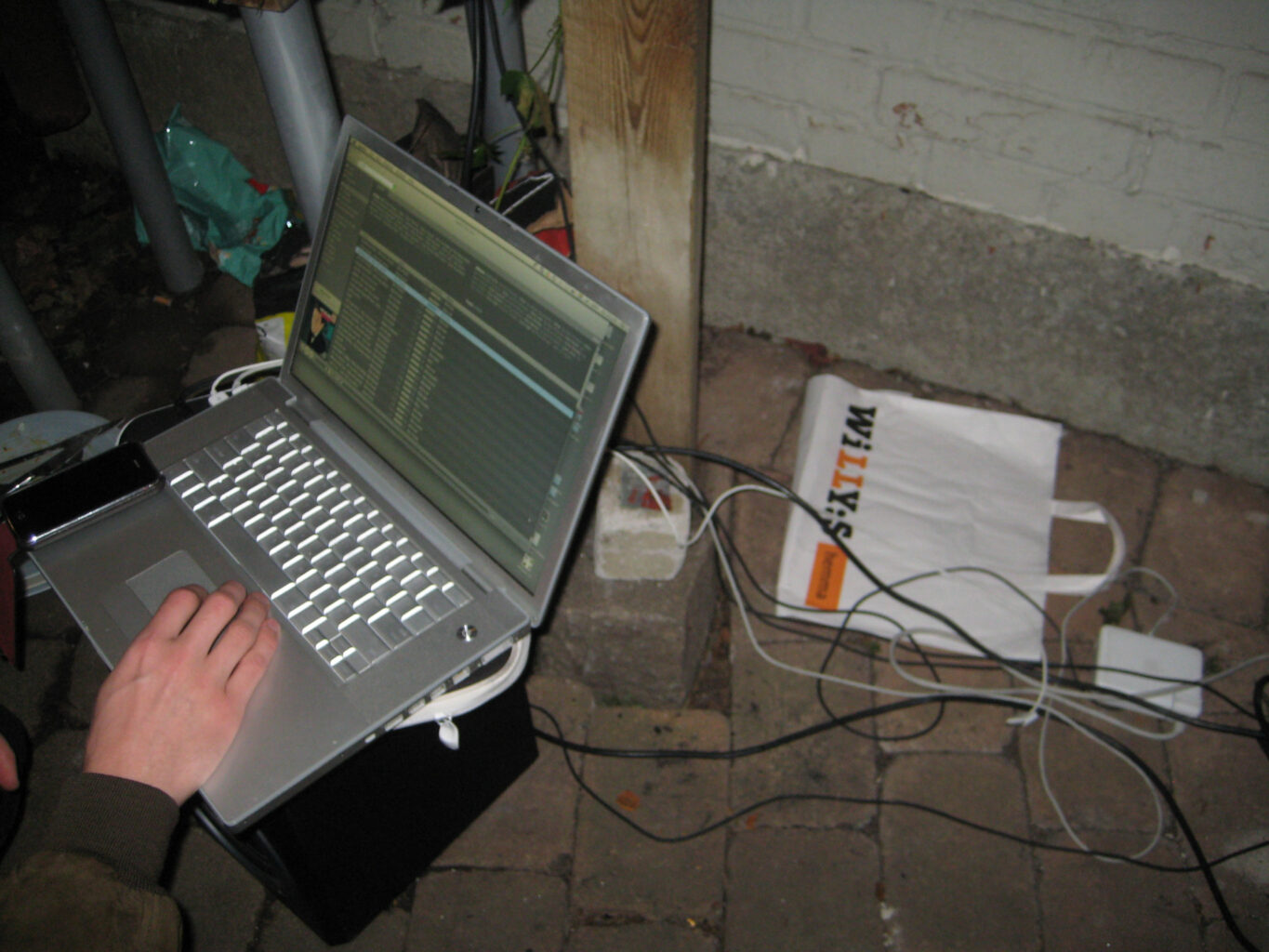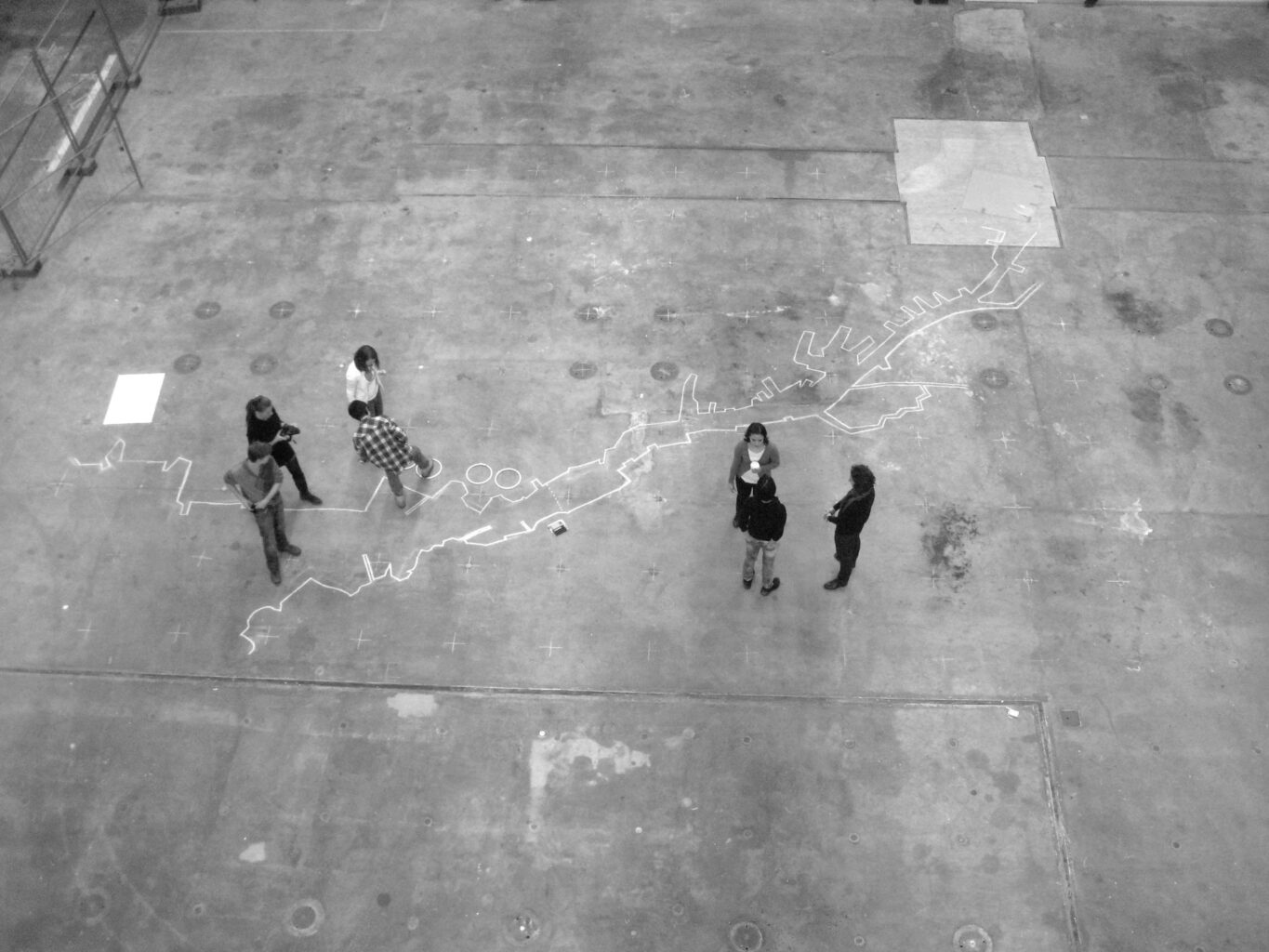As I’m moving into the design and research field at the same time as it’s being reshaped by both a recession and GenAI, I’ve been thinking hard about what skills I’m bringing with me into my adopted field – as well as what skills might differentiate me from my colleagues. One of those skills is a keen interest in applied futures studies: Where are we and where could we be heading?

For a person who always has felt a bit unmoored from the here and now, like many others I have found an outlet for this in the visions of science fiction – the bright-eyed sibling of futures studies that’s so good at telling stories. Lately, as I’m developing Hintlab.org into a platform for examining hints of human experiences, I’ve tried to become more structured and learn to apply future studies research methodologies beyond mere storytelling.
As I understand it, futures studies attempts find rigorous ways to examine a few basic but difficult questions:
- Where is humanity or a subset of humanity heading and where do we want to go?
- What can humans become under other conditions?
- How can human society of reinventing itself?
- What defines our relationship to the natural world and how does it affect us?
- How might something completely new – an unknown unknown – change us?
On a more down-to-earth note, future studies is also used to do discovery work in design: Identifying needs and niches for products and services, generate forecasts, identifying blindspots, and generally help organisations to navigate uncertain conditions and challenges.
The future isn’t discovered, it’s made – consciously or unconsciously. So as designer-researcher, I aim to expand my toolset beyond evaluating what exists today to envisioning what could be. While I’m entering design as a junior practitioner (despite seniority in other fields), I maintain this broader perspective: every design decision, however small, connects to larger human experiences, business goals, and societal outcomes.

Two recent books have allowed me think about how this applies to the design field: Jan Chipchase brilliant Field Study Handbook, and Julian Bleeckers (et.al) The Manual of Design Fiction – as well as his Near Future Laboratory discord. (Julian is giving a talk in London you can check out!). Chipchases handbook is a great manual for how to do discovery work, and Bleeckers Design Fiction framework is a easy framework for imagining future material culture. What they have in common is a rigorous approach to examining things and relationships as they really are, and I find myself returning to both books to ground my more flighty ideas.
One of my weaknessess in the futures craft is that I’m not formally trained as a futurist and lack the historical perspective of the field, so I put together a reading list to remedy that. The goal is to learn the historical narrative and find some best-practice manual. The books I’ve included are so far are:
- Wendell Bells two volumes: Foundations of Futures Studies
- Andy Hines & Peter Bishop: Thinking about the Future
- Peter Schwartz: The Art of the Long View
Having finished Wendell Bells two volumes I’d like to summarise some thoughts.

Wendell worked as a futurist for 40 years and wrote this book in order to summarise the history, practice, and philosophical and ethical frameworks for futures studies. It was published more than 20 years ago so it’s a bit dated by now, but it still gives a fantastic overview of the development of the field.
The first volume begins with a history of the professional field as it evolved within the US military complex, and traces the shift from the pragmatic forecasting, through scientific positivism, postmodernism and “post-postpositivism” – which he calls Critical Realism:
It synthesizes some aspects of older positivist views with some of those of the newer postpositivist philosophers, including in the latter case the claim that plausibility, not absolute certainty, is the most that can be claimed from scientific labors.
He has very little sympathy for the postmodern relativistic perspective, which he means makes any value judgement meaningless and hinders a discussion about a “preferred” future – something that he believes is an ethical imperative for all futurists. In order to say something about the future, you have to agree on what this “future” is composed of in a materialistic way, and if you’re stuck in a sceptical or nihilistic frame of mind (or religious, for that matter), you’re waive any rights to be included in the conversation – after all, if all is relative, so are you and your opinions, so what’s there to talk about?
With my academic background in a totally postmodern art education I find comfort in his takedown of the sceptical position, and appreciate his position. That said, the ethical and ontological chapters are the most heavyhanded and a bit of a slog – he’s so adamant about the conclusions at which he’d like to arrive, I can’t help but to feel that the questions are begged and carts put before strawman horses.
Regardless, he is opinionated and presents diverging opinions fairly, and given his social pathos I accept his reasoning and will try to apply it. To paraphrase: Given that everything we know is interpreted – phenomenological – we can’t but to try to agree on a moral and ontological common ground, use it axiomatically but always with an acknowledgement that we might be wrong.
Above all he’s a proponent of honesty and rigorous work. He’s well aware of the the consequences that might follow a too shallow approach of doing futures work – being intellectually lazy and ignoring ones own biases:
The drawbacks of future workshops include the possibilities of small groups being collectively uninformed about important relevant facts, inaccurate in forecasting the consequences of alternative actions, and parochial rather than universalistic in their value judgments and goals. Thus, resulting plans of action sometimes may do more damage than good. Future workshops also can result in falsely raising people’s hopes, only to have them dashed again if their efforts at social change are squashed. Finally, future workshops can be incompetently or cynically run and produce very little real participation or real change.
I’m keeping the above quote in mind when I dive deeper and continue with my own practice, collaborations and further reading: It’s easy to get ahead of oneself and tell stories that look and feel convincing, but are nothing but show – just another well designed slide-deck or scifi blockbuster. There’s no shortage of design work that never moves beyond this stage, and for good reason: It’s easy, it’s escapist and it tells a good story. But if I want to actually do good, influential and consequential work, I will have to be honest and rigorous with me and my clients about what I can realistically do for them.

All in all the book is fantastic foundational read on the topic of futures studies and I wish I’d read it while in art school – But since it’s never too late to learn new things and improve on oneself, I’m glad I’ve read it now that I’m trying to find my footing in the research and design world – having a futurist mindset can only be of service in finding new problems, solutions and possibilities regardless of what I work with.
One cannot act purposefully in any small respect except within a picture of what the world will be like when the action produces its effects.
We can’t act towards a goal without having an idea of what we’re up against, what we’re aiming for, or what we try to avoid. And if I can help someone conceive of a preferred future, I might help them to work towards actualising it. Or as Wendell Bell so eloquently put the challenge:
Both the helpless and the willfully reckless are part of the challenge of the future. Can we invent and enlarge the opportunities for more and more people to take control of their own lives in positive, life-affirming ways and open up more possibilities for everyone to benefit from the life- extending technologies currently available? Can we educate effectively, so people will acquire the knowledge, skills, and moral principles of be- havior that allow them to make choices that lead to productive, long lives of good quality for themselves and others?